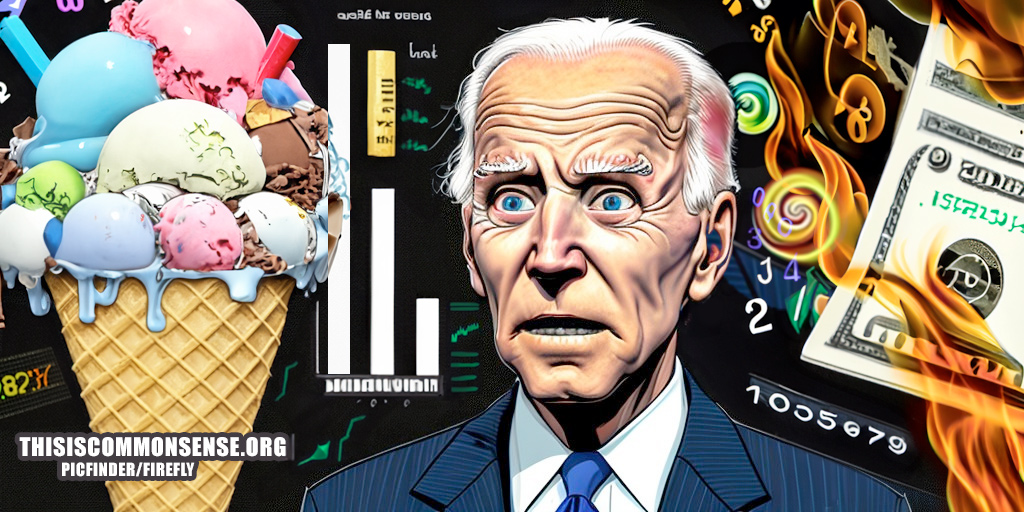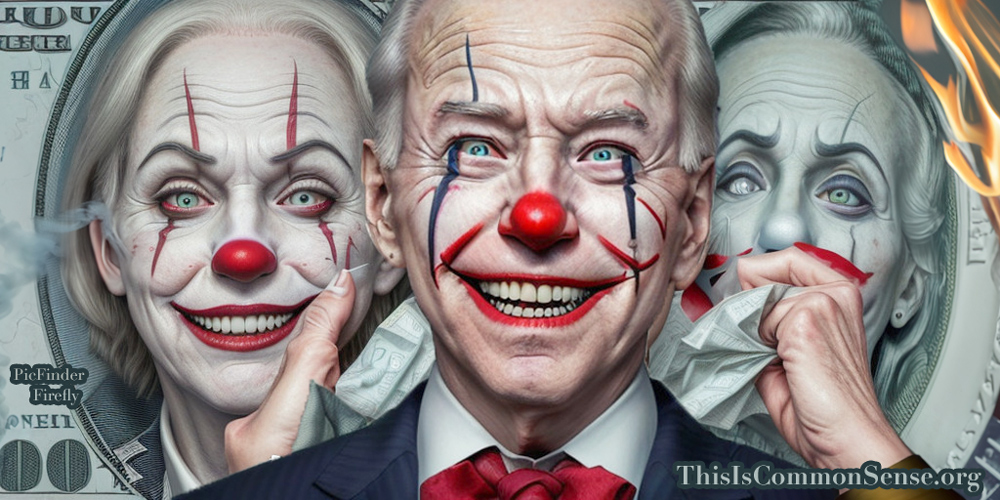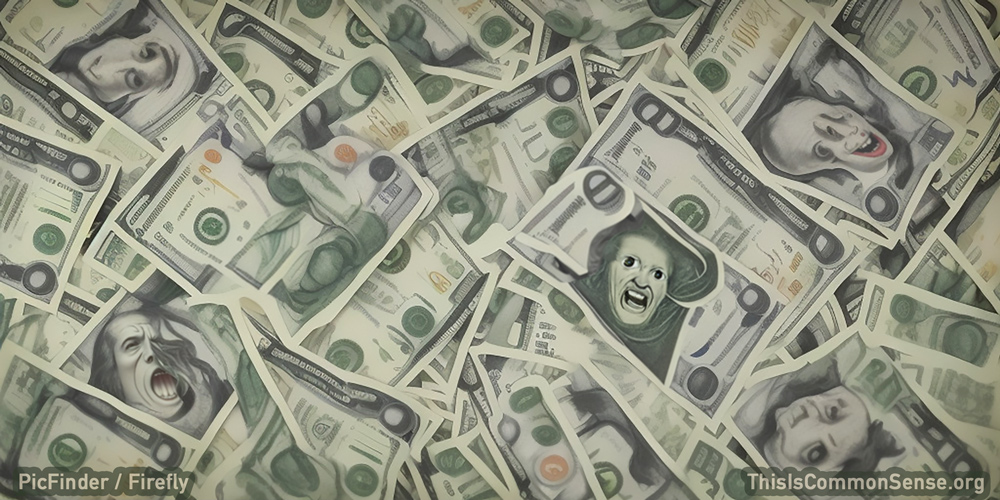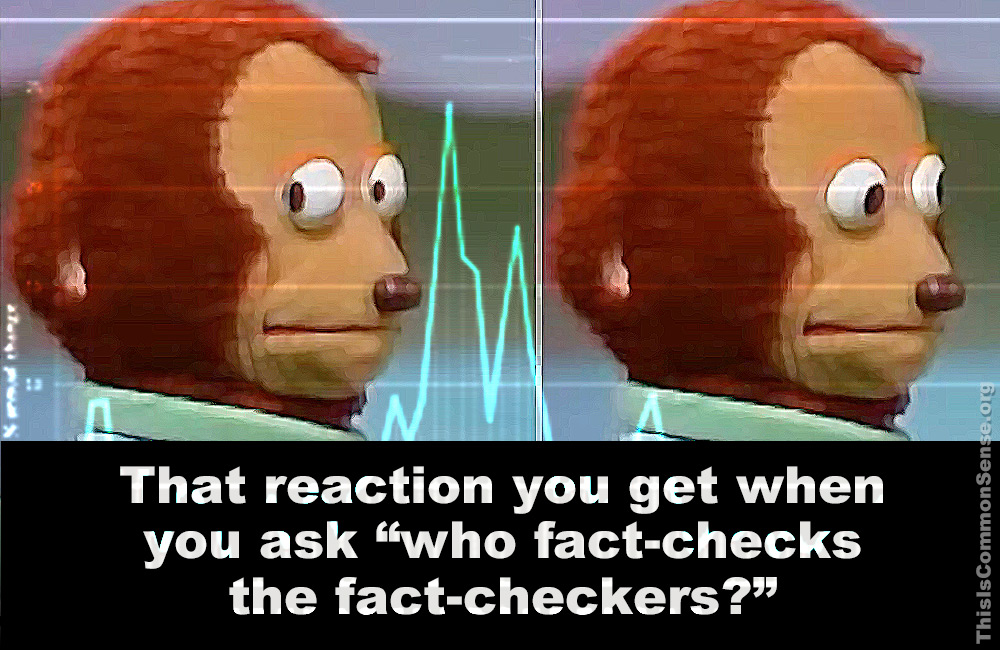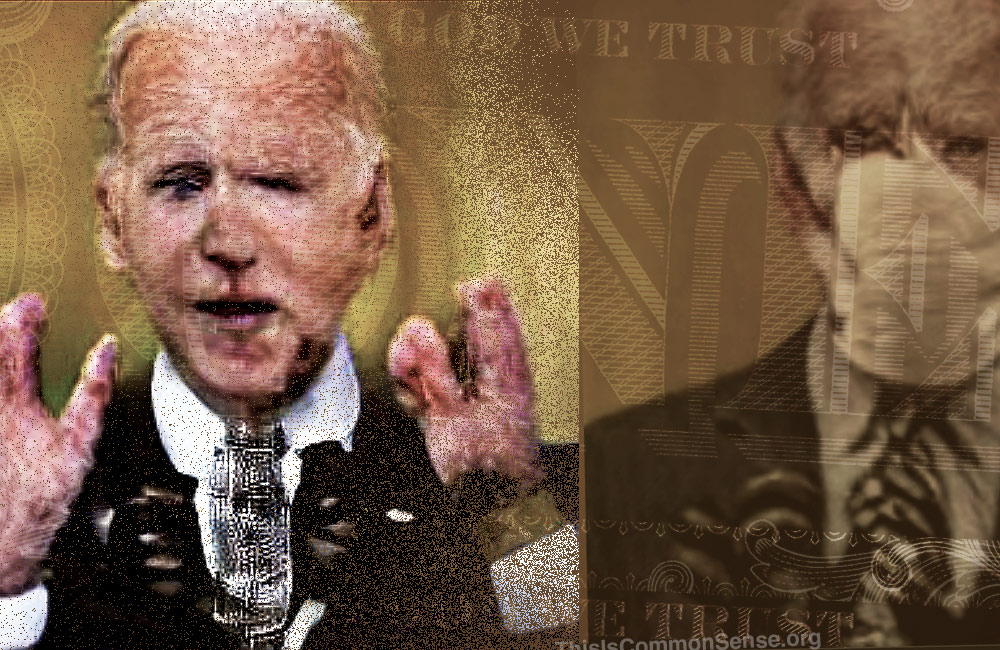In another pathetic pre-recorded speech, played before Sunday’s Super Bowl, President Joe Biden lambasted America’s corporations for “shrinkflation.”
“As an ice cream lover,” he explained in the vid, “what makes me the most angry is that ice cream cartons have actually shrunk in size but not in price.”
The Guardian expands upon the president’s gripe: “Inflation dropped to 3.1% in December but some companies are thought to have responded to rising costs by marginally shrinking the size of products — shrinkflation — as well as changing recipes to reduce the amount of more expensive ingredients — sometimes known as ‘skimpflation.’”
My, oh my, so businesses must adjust to inflationary pressures as well.
When the costs of their inputs go up, they do not automatically become charities. Knowing that consumers do not sport infinite incomes and demand schedules utterly “inelastic” — buying the same goods in the same quantities even at higher prices — they often adjust by reducing quality or quantity.
It is one of many ways that inflation hurts us.
Inflation has even been referred to as the sneakiest of all taxes, taking from the masses and giving to the insider class, those closest to government (those who receive newly-created money first).
Biden calls “shrinkflation” a “rip-off” and insists that “the American public is tired of being played as suckers.”
Well, that will prove true only if the American public rejects those politicians who push the policies that led to the inflation — politicians like those in the 116th and 117th Congresses, Donald Trump, and Joe Biden himself.
This is Common Sense. I’m Paul Jacob.
Illustration created with PicFinder and Firefly
—
See all recent commentary
(simplified and organized)
